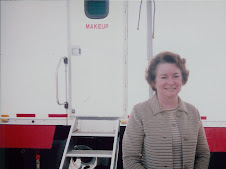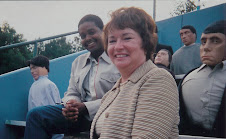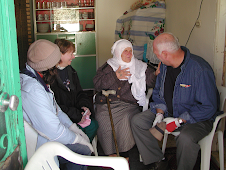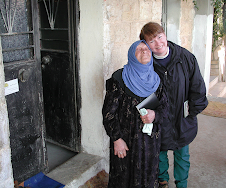Sunday, January 17, 2010
THE LEAST OF THESE
I traveled to Lebanon with Georgia Baptist Disaster Relief during a period of detente. This is the story told in 4 posts.
THE LEAST OF THESE
In Lebanon
The olive trees stand overgrown and abandoned in fields so rock-strewn it would seem nothing could grow here. However, in fields where the trees are pruned and fertilized, thousands of olives hide among the gray-green leaves. How ironic that the olive tree, precious for its oil, fruit and fuel, and its olive branch a very symbol of peace, is one of the victims of war.
Warning signs mark the fields of feral olives and pastures. Pictures of cluster bombs and land mines depict the danger to anyone walking there.
“The land is poisoned,” says our guide. “Because of the live bombs and mines, people cannot tend their olive and apple trees, or till their gardens in these areas.” It is another war-related loss in a land which has seldom known peace.
Cool days and cold nights herald the winter season in southern Lebanon. Six Americans, two women and four men, traveled here from Georgia to distribute food, heaters, and water tanks. We are an experienced group, having worked in disaster events ranging from the Twin Towers cleanup after 9/11 to tornadoes, hurricanes, earthquakes, ice storms, floods, and the tragic tsunami in Southeast Asia.
I squeeze into a van with our driver, two young female translators, the other five team members, and a large young man. With all of us in the 7-person van, one of the translators must sit on the floor of the van and the young man sits on a plastic crate. The rest of us wedge ourselves tightly together, which is good, since the roads, worn and crumbling, also sustained huge bomb craters, producing such violent jouncing that we might fly up and strike the top of the van if we are not securely clamped together.
Even so, I enjoy the scenery. Snow-capped Mt. Herman dominates the eastern view. Nearer I see the olive and apple groves and a land beautiful in its stark emptiness.
The village, small and tight-knit, climbs up and down the rocky, hilly countryside. The main street meanders through the village, curving and undulating. The concrete houses crowd the narrow streets and cling precariously to the steep hills. Wherever you go here, you go either uphill or downhill. I think the residents must have strong legs.
It is a bit of a shock to hear our guide casually mention our “escorts”. I was not afraid to come here, believing that the most dangerous part of the trip is the drive to the Atlanta airport. But this is the Middle East, where trouble might brew for years or suddenly erupt like Mt. Vesuvius.
Subscribe to:
Post Comments (Atom)



























No comments:
Post a Comment